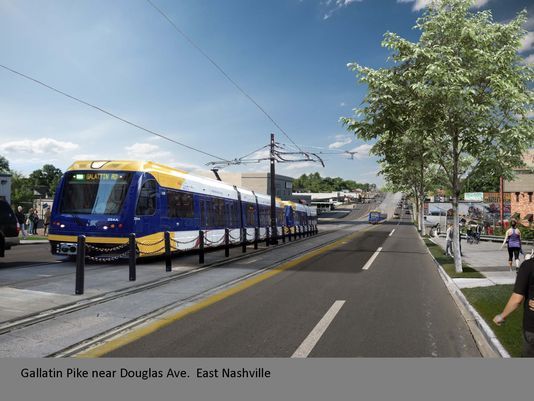
Nashville transit boosters are pitching plans to fund the city’s first light rail project as a way to improve traffic. But planning officials acknowledge transit is unlikely to relieve much congestion on the roads.
“Less gridlock” is the catchphrase Transit for Nashville has been using to garner petition signatures and show support for a referendum that would establish taxes to fund transit. But traffic
experts around the country, and
those in Nashville, don’t have models that show transit will make commutes any faster.
“I think traffic is the best it’s going to get today,” says Michelle Lacewell, who leads the Metropolitan Planning Organization. The MPO studies traffic and growth patterns in the region.
“Making traffic better doesn’t necessarily always relate to an individual’s experience of speed, if that makes sense,” she says.
We need your voice! Sign the petition. Volunteer. Spread the word.
https://t.co/GPaXUrC6YV
pic.twitter.com/FqRWIewE30— TransitForNashville (@TransitForNash)
September 20, 2017
Even if traffic is slower, Lacewell says transit improvements will still, in theory, move more people down a particular corridor more efficiently.
But that is not how Transit for Nashville is rallying public support. In a statement, the group stands by the logic that more transportation options will move people out of their cars, thereby lessening current and future congestion.
“We’re calling for more options for people to move around the city without driving,” spokesperson Walter Searcy says. “By providing additional transportation options, we will move people out of car seats and into alternative forms of transportation. This will lessen existing loads as well as the future load.”
Mayor Megan Barry will release details of her plans to fund transit Tuesday, starting with a light-rail line down Gallatin Road. It will require a referendum vote, which is
tentatively scheduled for May.


